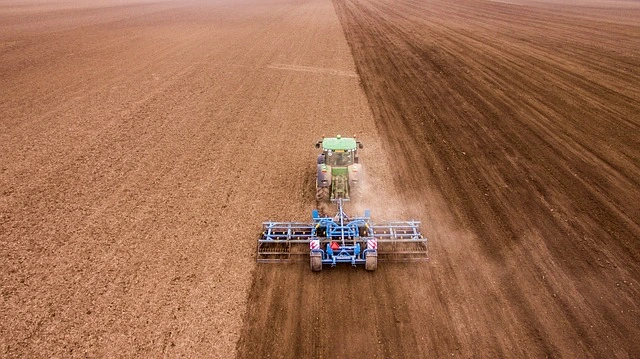Navigating the Tax Landscape for Agricultural Equipment Businesses: Inventory Valuation and Sales Tax
Dealers in agricultural equipment are vital to the farming community since they supply necessary equipment and tools. It might be challenging to manage the tax ramifications of sales tax and inventory valuation, though. With a focus on inventory value and sales tax compliance, this guide examines important tax planning techniques for dealers of agricultural equipment.
Recognizing Agricultural Equipment Dealers’ Tax Duties
1. Inventory Valuation:
First In, First Out (FIFO) vs. Last In, First Out (LIFO): Dealers have a choice between the two systems for valuing their inventory. Every technique can alter taxable income and has varying tax ramifications.
Cost of Goods Sold (COGS): Determining COGS accurately is crucial to figuring out taxable revenue. Accurate COGS reporting can be ensured by routinely updating inventory information.
2. Compliance with Sales Tax:
State and Local Statutes: State and local laws governing sales taxes differ. Dealers need to be aware of the particular regulations in the areas in which they operate.
Exemptions: Depending on state legislation, some sales of farm equipment may not be subject to sales tax. For certain exclusions to be supported, appropriate paperwork is required.
Tax Planning Techniques for Dealers of Agricultural Equipment
1. Precise Inventory Monitoring:
Inventory Control Systems: Track sales, purchases, and inventory levels by putting in place reliable inventory management systems. This facilitates precise COGS computation and inventory valuation.
Periodic Inventory Counts: Perform physical inventory counts on a regular basis to make that inventory records are accurate and to correct any disparities.
2. Selecting the Appropriate Method for Inventory Valuation:
FIFO Method: The oldest inventory items are sold first when using the FIFO method. In times when prices are rising, this strategy may increase taxable income; yet, in times when prices are falling, it can be advantageous.
LIFO method: This is predicated on the idea that the newest inventory items will be sold first. While this strategy can reduce taxable income during inflationary times, not all businesses may find it to be appropriate. Before selecting this approach, think about the long-term effects.
3. Sales Tax Management:
Compliance Frameworks: To guarantee proper sales tax calculation, collection, and remittance, use sales tax compliance software. These systems are capable of automating modifications in response to shifting laws and tax rates.
Documentation of Exemptions: Keep thorough records of all sales tax exemptions, including the exemption certificates that eligible purchasers have provided. Examine these documents frequently to make sure compliance.
Advice for Agricultural Equipment Dealers on Tax Compliance
1. Keep Up with Tax Regulations:
State and Local Laws: Stay up to date on any changes to local or state tax legislation that may affect sales tax requirements and inventory valuation. Regularly consult with tax professionals and subscribe to tax updates.
Industry-Specific Guidelines: Recognize the tax laws that are unique to the agricultural equipment business and the exemptions and deductions that may be available.
2. Expert Tax Guidance:
Consult a Tax Counselor: To handle complicated tax matters, consult a tax professional with experience in the agriculture industry. A specialist can guarantee adherence to all tax laws and offer customized advice.
Frequent Tax Audits: To find and address any compliance problems before they get worse, periodically conduct internal tax audits.
3. Make Use of Technology:
Automated Systems: Invest in technological solutions to ensure sales tax compliance and inventory management. These solutions have the potential to increase productivity, decrease errors, and streamline processes.
Data Integration: To ensure accurate financial reporting, make sure your inventory management system works seamlessly with your accounting and tax software.
Case Study: An Agricultural Equipment Dealer’s Tax Planning
1. Overview of Dealers:
Background: Tractors, harvesters, and other farming machines are the areas of expertise for this mid-sized agricultural equipment dealer.
Difficulties: Seasonal demand fluctuations, complex inventory management, and shifting sales tax rates.
2. Tax Strategies Put into Practice:
Inventory Valuation: In order to account for the cost of older, less expensive inventory in COGS and produce a more advantageous taxable income during periods of rising prices, the FIFO technique of inventory valuation was used.
Sales Tax Compliance: To ensure correct tax collection and payment, sales tax compliance software was implemented to automate tax computations and updates.
3. Results:
Increased Accuracy: Higher accuracy in sales tax reporting and inventory valuation lowers the possibility of audits and fines.
Cost Savings: By locating and wisely utilizing qualified sales tax exemptions, considerable cost savings were realized.
Operational Efficiency: Technology integration streamlines processes, freeing up resources for company expansion.
Dealers of agricultural equipment confront particular tax issues with inventory valuation and sales tax compliance. Utilizing technology and creative tax planning, these companies may improve profitability, guarantee compliance, and streamline their financial operations. Also, consider utilizing marketplaces like IfindTaxPro, you can post your project and find the right professional for your needs.








